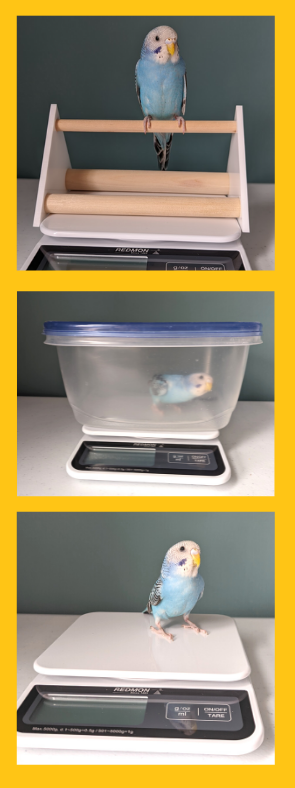Why Weigh Your Bird?
Sometimes it can be difficult to determine whether our feathered friends are healthy. Like many prey animals, birds will hide signs of illness. In the wild, this can protect them from predators—but it also means that they disguise sickness from their owners. Birds can be sick without noticeably altering their behavior. This is why weighing is important.
Weighing your bird is a great way of gauging their overall wellbeing, allowing you to catch illness in its earliest stages. Alongside other practices, such as logging diet and closely monitoring behavior, weighing will help you ensure your bird is not concealing a curable disease or deficiency. Additionally, it can help you determine whether you are providing the proper amount of food, stimulation, and exercise. A stressed bird can lose weight, making them prone to health conditions.
It is recommended that you weigh your bird once a week. To ensure your results are reliable, you will want to do this at the same time and day each week—preferably in the morning, before your bird has eaten and after they have finished their morning dropping. Weighing is especially important for birds that are transitioning diet, letting you know whether the transition should be enacted more gradually.
There are different types of scales including kitchen scales and perching scales. Hand-tame birds can stand on kitchen scales or perches. Untamed birds can be caught with a towel and gently rolled before being placed on the scale, or they can be placed within a safe container on a scale to prevent them from flying away as their weight is calculated.
Weighing will let you know what weight range is normal for your bird when done regularly, including seasonal fluctuations which are natural. To keep track of your bird’s weight, you should maintain a written record. This record will assist you in determining when to visit the vet outside of annual exams. If you notice an abrupt change in your bird’s weight outside of its usual range, then you should contact your vet and set up an appointment as soon as possible. Hopefully these facts and tips have showcased the importance of weighing!

